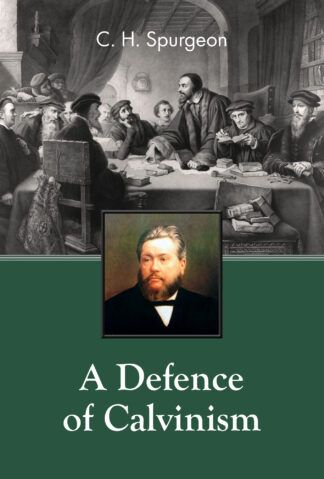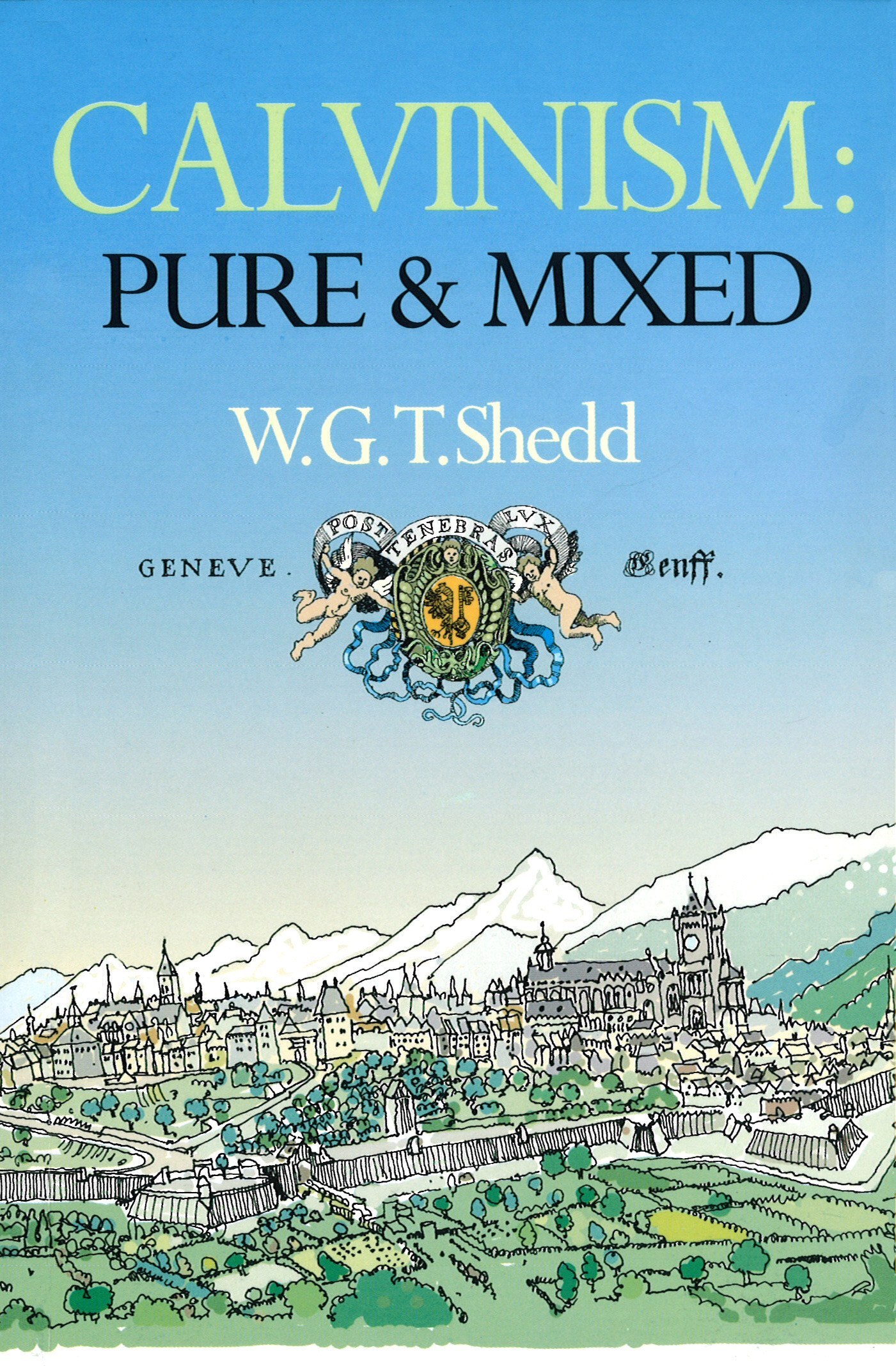‘Sort of’ Reformed: Part 1
In the mid-twentieth century, those Christians who were willing to call themselves ‘Reformed’ or ‘Calvinistic’ were relatively few in number. Liberalism had done its work in the large mainline denominations to discredit ‘Reformation’ doctrine. Evangelicalism had fallen so low that many dismissed theology altogether by saying that doctrine only divides. ‘Calvinist’ was a slur to denigrate a Christian and to advise that the warm-hearted distance themselves from him. ‘Orthodoxy’ was a word seldom used without the adjective ‘cold’.
Resurgence of Reformation Doctrine
Just at that time, in God’s good providence, a number of theologians and gospel ministers boldly reasserted biblical or ‘Reformed’ doctrine. They were assisted by publishers who reprinted the works of the Reformers, the Puritans, and others through the centuries who had held to the same system of doctrine. Over the last half century the number of these men has increased. There has been an enormous amount of work to do, both in turning multitudes away from bewitching liberalism to the Christ of Scripture and in reaching out to fellow-Christians to enrich their knowledge of God’s Word with the insights of the Reformers and their children.
As these important ministries have made ever-widening ripples on the waves of the religious world more people have felt their impact. Reformed commentaries and books are being read in places one would not have expected fifty years ago. The work of Reformed witnesses and Reformed preaching is having a spreading influence. One consequence of this is the growing number of individuals and organizations wanting to call themselves ‘Reformed’, ‘Calvinistic’ or‘Sovereign Grace’.
Adopting the title ‘Reformed’ is becoming somewhat popular. It is not uncommon for someone who had been self-satisfied in a ‘non-doctrinal’ Christianity to be awakened by biblical terms such as‘election’ or ‘imputation’. Most of these people have begun to look into Reformed truth through the doorway of man’s salvation. Recognizing the sovereign moving of God’s Spirit to awaken sinners and to quicken them to life as the prior cause of their coming to Christ opens up a whole new outlook. Yet after going through the doorway, most of us required years to understand the doctrinal system which is called ‘Reformed’. One truth implies another, and then another still. The truths are interlocking, and mutually supportive of one another.
Those who are active in leading others into ‘the doctrines of grace’ are delighted when someone begins to grasp the meaning of God’s ‘grace’. It is no offence to us when such beginners call themselves ‘Reformed’, even though we realize that novices are far from understanding many vital elements of Reformed truth. Since it took us so long a time to work through the implications of these convictions we can be patient with others’ journeys into truth.
However, many have come to approach Reformed theology as one would a salad bar. Such Christians seem to think that they may choose items they personally like but turn up their noses at Reformed doctrines that are not to their taste. Some cannot digest all of the foundational doctrines of the Reformation. Further study leads them to a decisive rejection of doctrines that are pillars upholding the great Reformed confessions of faith. All the while they call themselves ‘Reformed’. Nevertheless other men publicly set forward leaders among this group as exemplary Reformed teachers. Entire organizations have been begun for the purpose of including those who are not in agreement with some very rudimentary truths on which the Reformation stood. These organizations also call themselves ‘Reformed’.
The Authority of Scripture
Nothing was as elementary to the Reformation as the doctrine stated by one of the Reformed creeds in this way: ‘The Holy Scripture is the only sufficient, certain, and infallible rule of all saving knowledge, faith, and obedience.’ This confession goes on to speak of ‘ . . . those former ways of God’s revealing his will unto his people being now ceased’. As if this were not sufficient, the confession is redundant: ‘The whole counsel of God concerning all things necessary for his own glory, man’s salvation, faith and life, is either expressly set down or necessarily contained in the Holy Scripture: unto which nothing at any time is to be added, whether by new revelation of the Spirit, or traditions of men.’
The Authority of Scripture and the Sufficiency of Scripture as an authority were truths set at rock bottom of the Reformation. Therefore, although friends and ministers who do not consciously assert the unique and sole authority of Scripture over what we believe and how we live may be beginning to move nearer to biblical truth, they are not ‘Reformed’.
As the Lord was reviving the Reformed system of doctrine in the latter half of the twentieth century, there was an opposite movement within Christianity. The longing for more than God’s Word to solve the church’s weakness, the craving after modern day miracle-workers and revelations, has also made its impact on Christendom. This inevitably has led to a view of authority which is in conflict with the Reformed teaching on that topic.
Although Charismatic adherents believe that the Bible is God’s Word and is authoritative, they still cannot assert with Paul that Scripture ‘thoroughly’ equips the man of God ‘for every good work’ (2 Tim. 3:16–17).
The Reformers emerged from a medieval church which also believed that the Bible was the authoritative Word of God. Yet this Scripture was only selectively called to the attention of congregations by a special class of leaders. Their teaching mixed God’s words with the interpretations or ‘revelations’ of popes and bishops. The church vigorously downplayed Bible study while at the same time commending contemporary ‘revelations’ which attended tawdry ‘miracle-workers’ of the times.
The Reformers Were Very Definite on Authority
Nothing was clearer in the Reformation than the assertion that Scripture stands alone as the authority which would inform our belief and bind us to action. Perhaps the most memorable statement, because of the dramatic circumstances in which it was uttered, was found in Luther’s words to the head of the Holy Roman Empire, to princes and to bishops: ‘Unless I am convicted by Scripture and plain reason –ּ I do not accept the authority of popes and councils, for they have contradicted each other – my conscience is captive to the Word of God.’
Perhaps equally deserving of our attention is the reply of John Wycliffe when in 1408 a church council forbade him to translate Scripture into English: ‘You say it is heresy to speak of the Holy Scriptures in English. You call me a heretic because I have translated the Bible into the common tongue of the people. Do you know whom you blaspheme? Did not the Holy Ghost give the Word of God at first in the mother-tongue of the nations to whom it was addressed? Why do you speak against the Holy Ghost? You say that the Church of God is in danger from this book. How can this be? Is it not from the Bible only that we learn that God has set up such a society as a Church on earth? Is it not the Bible that gives all her authority to the church? . . . Without the Bible, what charter has the Church to show all these? It is you who place the Church in jeopardy by hiding the Divine warrant, the missive royal of her King, for the authority she wields and the faith she enjoins.’
In addition we have a guiding principle of John Knox as stated by Iain Murray in his Scottish Christian Heritage, p. 14, ‘Christians are bound to a universal obedience to the Word of God, no matter what the cost, no matter what the consequences. More particularly, nothing is lawful in the church unless it is found in Scripture.’
The Reformed doctrine of salvation for sinners arises from a careful study of Scripture, as do the other parts of the system of Reformed doctrine. Its conclusions have never been reached nor can they be supported by anything but scrupulous adherence to Scripture alone. Human reasoning and subjective impulses untied from the Scripture-alone approach have never arrived at these principles. Scripture as the only authority, and Scripture interpreting Scripture, build the superstructure of Reformed truth and maintain it.
When men abandon Scripture as their sole authority leading to truth and righteousness the door is thrown open to all of the abuses of medieval thinking. Subjective feelings and impulses which are not aroused by the truth of Scripture become free to roam at human will. When leaders who follow such impressions arrive at convictions contrary to Scripture they impose them on others in the church in the name of God’s special (but unwritten) revelation.
Contributing to this movement, alien to the Reformation, is the human thirst for the visual or dramatic rather than the verbal. But we know that ‘Faith comes by hearing and hearing by the Word of God’
(Rom. 10:17). The Holy Spirit brought this Word to man through the prophets and apostles. He attends that Word in all his saving operations. ‘Having been born again . . . through the Word of God . . . ’ (1 Pet. 1:23).
Remove God’s Word as the singular authority for truth and practice from the collection of doctrines called ‘Reformed’, and the remainder will collapse into a heap, unsupportable by any other system. We say this not to suggest that such is the intent of those who hold to authorities in addition to the Bible. It is rather an expression of the hopelessness of upholding or conveying to others Reformation doctrine without the basic step of commitment to Scripture alone as the logical first principle of our system of thought. Any hedging on this point makes the entire system of divine truth shake with instability.
This article first appeared in the November 2006 edition of the Banner of Truth magazine.
Of Further Interest

Description
In the mid-twentieth century, those Christians who were willing to call themselves ‘Reformed’ or ‘Calvinistic’ were relatively few in number. Liberalism had done its work in the large mainline denominations to discredit ‘Reformation’ doctrine. Evangelicalism had fallen so low that many dismissed theology altogether by saying that doctrine only divides. ‘Calvinist’ was a slur to denigrate a Christian and to advise […]

Calvinism: Pure and Mixed
A Defence of The Westminster Standards
Description
In the mid-twentieth century, those Christians who were willing to call themselves ‘Reformed’ or ‘Calvinistic’ were relatively few in number. Liberalism had done its work in the large mainline denominations to discredit ‘Reformation’ doctrine. Evangelicalism had fallen so low that many dismissed theology altogether by saying that doctrine only divides. ‘Calvinist’ was a slur to denigrate a Christian and to advise […]

Pleading for a Reformation Vision
The Life and Selected Writings of William Childs Robinson
Description
In the mid-twentieth century, those Christians who were willing to call themselves ‘Reformed’ or ‘Calvinistic’ were relatively few in number. Liberalism had done its work in the large mainline denominations to discredit ‘Reformation’ doctrine. Evangelicalism had fallen so low that many dismissed theology altogether by saying that doctrine only divides. ‘Calvinist’ was a slur to denigrate a Christian and to advise […]
Latest Articles
On the Trail of the Covenanters February 12, 2026
The first two episodes of The Covenanter Story are now available. In an article that first appeared in the February edition of the Banner magazine, Joshua Kellard relates why the witness of the Scottish Covenanters is worthy of the earnest attention of evangelical Christians today. In late November of last year, on the hills above […]
A Martyr’s Last Letter to His Wife February 11, 2026
In the first video of The Covenanter Story, which releases tomorrow, we tell the story of James Guthrie, the first great martyr of the Covenant. On June 1, the day he was executed for high treason, he coursed the following farewell letter to his wife: “My heart,— Being within a few hours to lay down […]
